While I was never going to be exactly like my friend, I could learn from him. He even read my statements for my internship application – ‘you could put this in’, ‘watch out, that looks wrong’ – and mentioned ‘my friend Patricia’ to the recruiters, so they looked out for me. Some people suggest seeking out mentors, even people you might respect that you’ve never met before. Go for it if it feels right for you, but you don’t have to do it that way. My friend was my mentor – even if he didn’t know that (till now!).
LIFE LESSON: Associate with people who are doing what you want to do, but who are doing it better than you. Don’t be threatened – you can climb together. I knew my friend was more informed than me, I knew he was on a really good trajectory, so my attitude was: Mate – hook me up! And that’s exactly what he did.
Acing the interview
Soon I learned that I’d passed the first hurdle: I’d been selected for the interview process. But how do you get that great job or secure that fantastic internship when you’ve no experience? It’s the classic frustrating catch-22 situation for a lot of graduates, school-leavers and career-switchers. Again, it’s all about preparation and accumulating a working knowledge of the industry you want to enter. But, at the same time, when you’re starting off no one’s expecting you to be an absolute expert in, say, financial markets. You’ll learn everything when you’re on the job. The key thing is just to demonstrate what skill sets you have. Now, when I was chasing this Merrill Lynch internship, I hadn’t done a placement in the City already and therefore couldn’t draw on experiences I hadn’t had. So I talked about what I did know: I’d always worked in retail, and I had my hair business. I wove narratives – told compelling stories about my experiences – to show the recruiters that I had experience in something.
In my case, I had what seemed like endless interviews. There was a woman quite close to me in age who was in HR – the gatekeeper. Then, there were a panel of men in suits. But my approach was the same: charm, share, talk! You don’t have to be embarrassed about your past experience – draw on it to show, for example, how you dealt with difficult situations or how you took the initiative. So much of work and business is firefighting: share how you put out flames, what you learned, and showcase your ability to come up with solutions. This is exactly what I look for today in my team members: that story about the tricky customer you managed to deliver for really can serve you well.
I’d also done lots of unpaid activities that packed my CV. I’d been a mentor to school-age kids and shared with them what it was like being a university student. And I was involved with Young Enterprise, a scheme helping young people set up their own businesses. I was able to draw from both experiences. So get involved in real-life activities! If you’re at home twiddling your thumbs or always staring at a screen you’ll have nothing to draw from. Your experiences can help you get that role, though they might seem unrelated to the job. Sometimes recruiters simply want to know that you’re a well-rounded person.
LIFE LESSON: Business is about people working with people. You want to connect with the interviewer. Preparation is important of course, but once you’re in there don’t be afraid to let go of the pressure to remember every tiny detail. You don’t need to remember to ask what happened to the company’s tech division in the last quarter. Try to be a little more personal and find common ground.
Break the rules
I know a lot of people can feel scared about applying for jobs. The list of requirements can seem so daunting! And this lack of confidence in our abilities seems to affect women in particular. You might have heard this statistic before: men will apply for a job when they meet just 60 per cent of the requirements, but women only apply if they meet 100 per cent of them. 1It’s been called the ‘gender confidence gap’ – we can be hesitant about taking action to push ourselves forward.
My thinking is: just do it – even if you’re not sure of the outcome, try it and see what happens. When I applied for the internship, the odds were stacked against me. I knew I didn’t have the grades they wanted. I wasn’t in my second year of university, like most applicants, but in my final year. The bank required 360 UCAS points to apply, but because I had dropped an A-level (chemistry – I hated it!) I only had 280 points. That, in normal circumstances, would have automatically taken me out of the running for most of the graduate schemes I was interested in. But I completed the application form, despite my situation. Some people would have thought to themselves, ‘I don’t have the right grades so I’m not going to apply’ – to be honest, that’s what I thought at first! I had never submitted any other similar applications because I was scared of rejection. But, encouraged by my friend Emeka, I did it despite my fear, explaining honestly why I didn’t have the UCAS points, and why it wasn’t an issue. In that way, I set the ball rolling for my future.
Later, as part of that process to get an internship, I failed one of the maths tests. I cried straight after taking it, as I knew it hadn’t gone well. With thousands of people applying for the internship programme, I knew that if you failed one of the tests, you didn’t get in – that was the general rule. But because I had tried to build those relationships at the dinner, and connected with a few of the right people – because they’d seen my drive and determination first-hand and considered my potential to be more important than my ability – they gave me the opportunity to come in and retake the test. This time I made sure I was ready. The questions were mainly algebra (my nemesis!), so I spent a few weeks improving my knowledge of the principles, doing practice test after practice test, night after night. When it was time to do the real test again, I smashed it and got the internship.
LIFE LESSON: Your limits are based on how you perceive yourself. Challenge your perception and you might be surprised. Every time I hit a stumbling block, I might have been momentarily disheartened, but I pushed through and the results were better than I could ever have imagined. Sometimes that’s all you have to do: push through.
The upshot was, I graduated, did my three-month internship in London, then was offered a job at the bank! I couldn’t believe it. My starting salary was £35,000, with a £5,000 sign-on bonus. For a twenty-one-year-old, that’s a lot of money. I’d done it! I thought to myself, I’m rich! I’ve made it in life .
Of course, I didn’t know then but this was just the beginning. And we’ll get into my time as a full-time employee. But I want to stress that as much as I talk about ‘doing your own thing’ and being an entrepreneur, I 100 per cent appreciate the values I picked up in the workplace. The skills I gained from all of my collective experiences and side hustles brought me to where I am today, providing me with valuable knowledge and experience that university could never have given me.
Nail that interview
It can be difficult to get that crucial first role and the dreaded interview can be a major stumbling block. But a good interview can also be the most impactful thing you do. So I’m going to share my cheats to make it a little less painful:
> You do not have to know everything – what you want to show is that you are willing to learn everything.
> Draw on your experiences to give specific examples of what you would do in the role. For example, ‘ If scenario X happened I would do Y, because when I dealt with situation A I applied B and XYZ was the result.’
Читать дальше
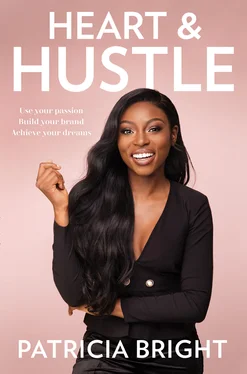
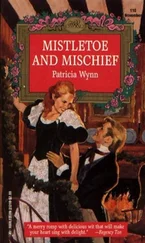
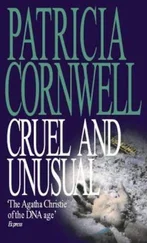



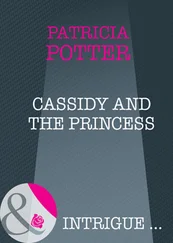

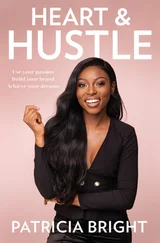



![John Bruce - The Lettsomian Lectures on Diseases and Disorders of the Heart and Arteries in Middle and Advanced Life [1900-1901]](/books/749387/john-bruce-the-lettsomian-lectures-on-diseases-and-disorders-of-the-heart-and-arteries-in-middle-and-advanced-life-1900-1901-thumb.webp)